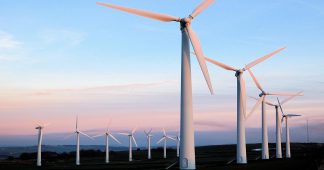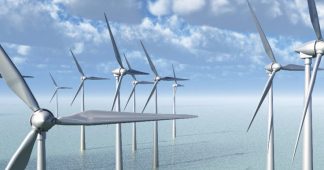August 23, 2019
On August 22nd, 2019, US presidential candidate Bernie Sanders unveiled his proposal for a “Green New Deal” for the United States. What makes Sanders’ proposal distinct—and especially noteworthy—is its bold and explicit commitment that “renewable energy generated by the Green New Deal will be publicly owned.”
Sanders’ commitment marks a clear break with more than two decades of climate policy that has taken private ownership of renewable energy as given. That approach has relied on government subsidies and incentives to entice private investors by “removing risk” (in other words, guaranteeing profits), with the aim of shepherding young renewable industries to “market competitiveness.”
As TUED has pointed out, that approach has failed on all levels: Deployment is far below what is required to meet the Paris Agreement’s science-based targets. The benefits of the renewable energy installed to date has often landed in the pockets of big companies and rich investors, not communities. Installation of new generation capacity is often done non-union. For more detail, please see TUED’s Working Paper 10, Preparing a Public Pathway: Confronting the Investment Crisis in Renewable Energy, or this more recent (and shorter) update, “Growth in Renewables has Stalled. Investment is Falling. But Why?”
While there are inevitably many questions that remain to be answered and details that remain to be filled in, Sanders’ proposal charts critically important new territory in global climate policy debates. Its headline commitments include:
- Reaching 100 percent renewable energy for electricity and transportation by no later than 2030, and complete decarbonization by 2050 at the latest. Key to this achievement will be expanding the existing federal Power Marketing Administrations to build new solar, wind, and geothermal energy sources.
- Ending unemployment by creating 20 million good paying, union jobs in steel and auto manufacturing, construction, energy efficiency retrofitting, coding and server farms, and renewable power plants. The plan would also see the creation of millions of jobs in sustainable agriculture, engineering, a reimagined and expanded Civilian Conservation Corp, and preserving public lands.
- Direct public investment of $16.3 trillion toward these efforts, in line with the mobilization of resources made during the New Deal and WWII, but with an explicit choice to include black, indigenous and other minority communities who were systematically excluded in the past.
- A just transition that prioritizes fossil fuel workers, guaranteeing five years at current salary, housing assistance, job training, health care, pension support, and priority job placement for any displaced worker, as well as early retirement support for those who choose it or can no longer work.
- Declaring climate change a national emergency.
Of special interest to TUED unions and allies, the plan would see that new renewable energy is publicly owned, and would be “managed by the Federal Power Marketing Administrations, the Bureau of Reclamation and the Tennessee Valley Authority and sold to distribution utilities with a preference for public power districts, municipally- and cooperatively-owned utilities with democratic, public ownership, and other existing utilities that demonstrate a commitment to the public interest.” This commitment not only ensures an important role for utilities, it effectively puts privatized and deregulated “investor-owned utilities” on notice.
Among its many other provisions, the plan also commits to “fully electrify and decarbonize” the US’ transportation sector, which will include expansion of public transit that is “affordable, accessible, fast, and resilient,” replacement of school and transit buses and all shipping trucks with electrified versions, the development of regional high-speed rail, and more. For TUED’s analysis of what is needed to fully meet the challenge of providing “sustainability mobility for all,” please see Working Paper 12: The Road Less Travelled: Reclaiming Public Transport for Climate-Ready Mobility.
TUED and the Democracy Collaborative, both of which have been advocating for public ownership and democratization of energy resources, are pleased to co-convene a one-hour call to discuss the Sanders plan and related developments. The call will take place August 28, 2019, 11:30am-12:30pm, immediately following TUED’s Global Web Forum on union responses to the youth-led calls for Global Climate Strike actions in September. Please RSVP for the call by email to irenetued@gmail.com.
Published at http://unionsforenergydemocracy.org/tued-bulletin-89/
Also read
Bernie Sanders Calls To Seize the Means of Electricity Production











